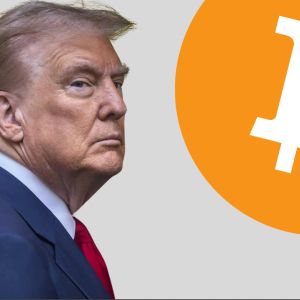Trump administration is looking into a de minimis tax exemption for Bitcoin transactions under $600
3 min read
White House Press Secretary Karoline Leavitt said the Trump administration is looking into a de minimis tax exemption for Bitcoin transactions under $600. This is to make it easier for Americans to use Bitcoin and other cryptos on a day-to-day basis. Karoline Leavitt revealed that President Trump has already signaled support for the exemption and that the administration continues to support it. 🚨 The White House is now exploring a de minimis tax exemption for #Bitcoin to make crypto payments easier. That means no more capital gains tax on small BTC transactions. Mass adoption just got one step closer 🇺🇸📲 #Crypto #BTC #Altseason pic.twitter.com/G5hkxlkO3L — PLETHORALLC (@plethorallc) July 17, 2025 “We are definitely receptive to it to make crypto payments easier and more efficient for those who seek to use crypto as simple as buying a cup of coffee,” Leavitt said. “Of course right now that cannot happen, but with the de minimis exemption, perhaps it could in the future, and we will continue to explore legislative solutions to accomplish that.” This would be another win for the crypto industry. However, $600 is still on the higher side. Earlier this month, Senator Cynthia Lummis introduced legislation to reform US crypto taxation. She aims to exempt transactions under $300 and alter the tax implications for mined or staked crypto. Trump’s office to hold a signing ceremony The House passed three major crypto bills on Thursday, locking in a rare legislative win for the industry. In what’s now the biggest regulatory overhaul for crypto so far, lawmakers voted on the GENIUS Act, the CLARITY Act, and the CBDC Anti-Surveillance State Act. Leavitt added that the bill was very important to keeping Trump’s campaign promise. “This piece of legislation is going to make America the crypto capital of the world, and that’s what the president promised,” she said. The GENIUS Act is mostly about regulating stablecoins. On the other hand, the CLARITY Act makes it clear that the SEC and CFTC will be responsible for different types of digital commodities, like Bitcoin. Meanwhile, some Democrats are still criticizing the bill for creating what they see as an overly weak regulatory framework that could pose long-term financial risks. They’ve also raised concerns that the legislation opens the door for major corporations to issue their own private crypto tokens. “If this bill passes, it will allow Elon Musk and Mark Zuckerberg to issue their own money. The bill still permits Big Tech companies and other conglomerates to issue their own private currencies,” said Massachusetts Sen. Elizabeth Warren. The Anti-CBDC Act says that the Federal Reserve can’t make a digital currency that is used by the whole country. The press secretary reiterated Trump’s opposition to a central bank digital currency (CBDC). She noted that he signed an executive order in January prohibiting its development. Leavitt said more crypto legislation will emerge from Capitol Hill. “The administration supports Congress’s efforts to codify that executive order into law, and I believe there will be future pieces of legislation in regards to crypto that will be moving through Capitol Hill,” she said. Bitcoin mining remains an issue Senator Cynthia Lummis recently unveiled a digital asset tax reform draft that addresses these Bitcoin issues. The one that is yet to be addressed is that the IRS doesn’t see it as a product. The IRS usually only taxes people who make goods at the point of sale. However, Bitcoin miners are taxed by the IRS both when they mine Bitcoin and when they sell it. Bitcoin is the only thing that the IRS treats this way. Cryptopolitan Academy: Want to grow your money in 2025? Learn how to do it with DeFi in our upcoming webclass. Save Your Spot

Source: Cryptopolitan



